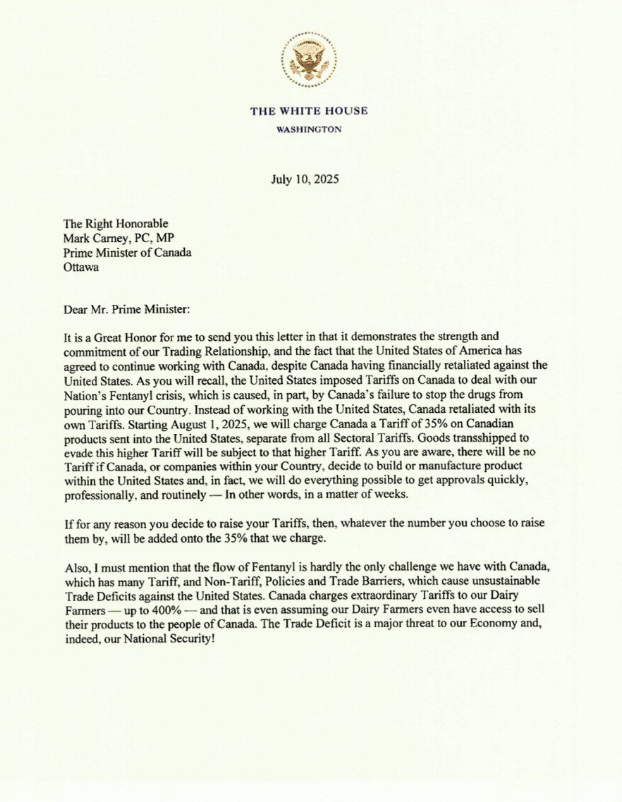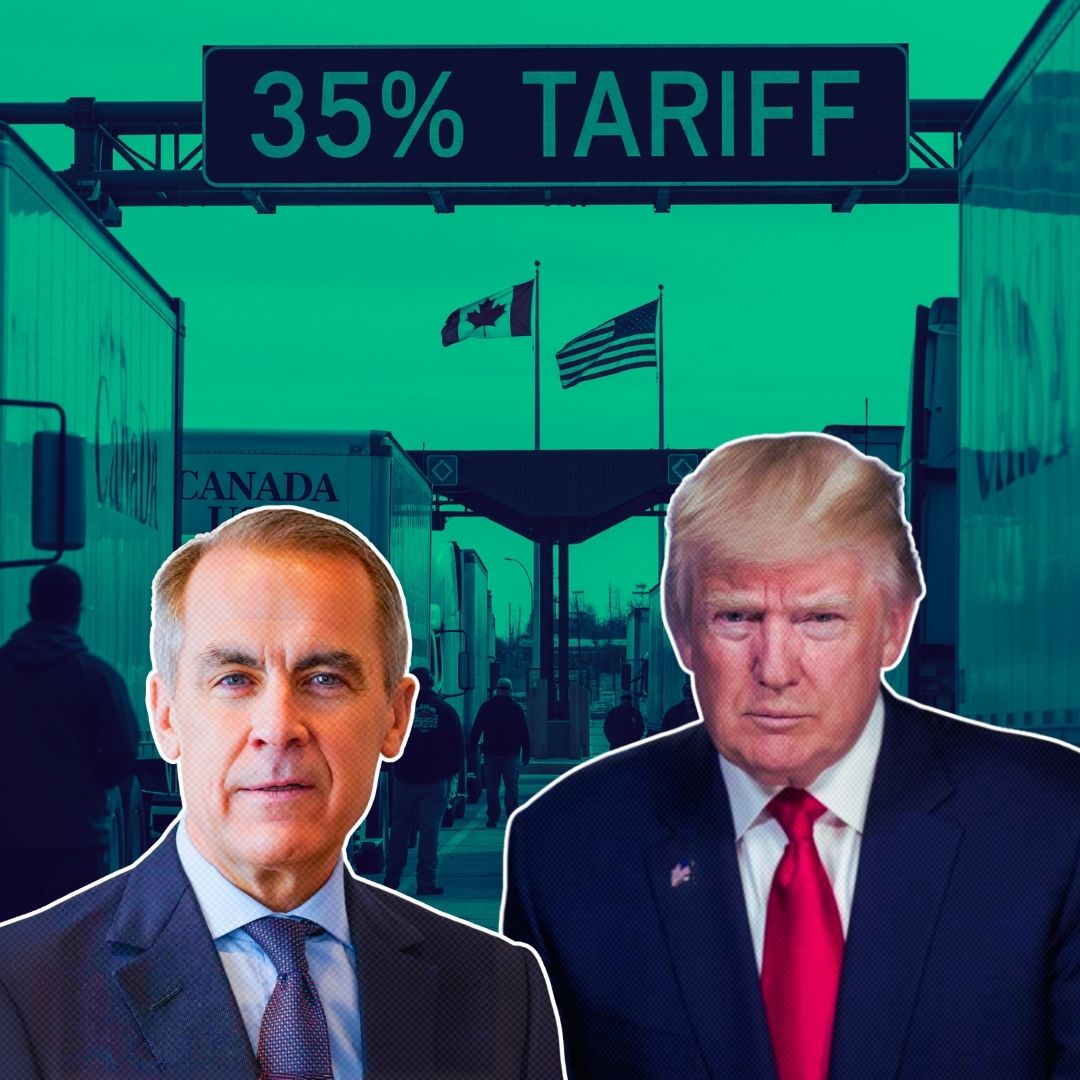US President Donald Trump has announced that a 35% tariff will be imposed on goods imported from Canada starting August 1, 2025, intensifying a major trade dispute. The announcement, made in a letter to Canadian Prime Minister Mark Carney and posted on social media, accuses Canada of retaliatory tariffs and insufficient action against fentanyl trafficking.
Trump warned that if Canada increases its tariffs on US goods, the US will raise its own tariffs accordingly. Canadian officials have not issued a formal response but are reportedly continuing negotiations with hopes of reaching a deal by July 21. The move follows Trump’s broader escalation of tariffs on other major trading partners, including Japan and South Korea.
Trade War Intensifies as Deadline Looms
The new 35% tariff marks a sharp increase from the previous 25% rate and is part of Trump’s push for what he calls “reciprocal” tariffs. Trump claims Canada’s high tariffs on US dairy—allegedly up to 400%—and the flow of fentanyl into the US are key reasons for the action.
He stated, “If for any reason you decide to raise your Tariffs, then, whatever the number you choose to raise them by, will be added onto the 35% that we charge.”
Trump has also threatened to assist Canadian companies wishing to relocate to the US with expedited regulatory approvals. Canadian negotiators, led by Ambassador Kirsten Hillman, are in daily contact with US officials, aiming to finalise an agreement before the July 21 deadline set during last month’s G7 summit.
Backdrop: Ongoing Negotiations and Disputed Claims
This tariff announcement comes amid ongoing, often tense, trade negotiations. Canada had previously imposed 25% reciprocal tariffs on US goods in March 2025, covering a range of products.
Trump’s claims about fentanyl trafficking from Canada have been widely disputed by both American and Canadian officials, who say there is little evidence to support the scale of the problem cited by the US president.
The trade relationship has also been strained by disputes over digital services taxes, with Canada recently rescinding its own tax to facilitate talks. Trump’s move is part of a broader strategy, as he has sent similar tariff letters to over 20 countries and announced blanket tariffs on other partners.
The Logical Indian’s Perspective
While safeguarding national interests is important, the escalation of tariffs risks deepening divisions and harming both economies. The Logical Indian urges all parties to prioritise dialogue, empathy, and peaceful negotiation over retaliatory measures.
Constructive engagement, not punitive tariffs, is the way forward for sustainable and harmonious international relations.













